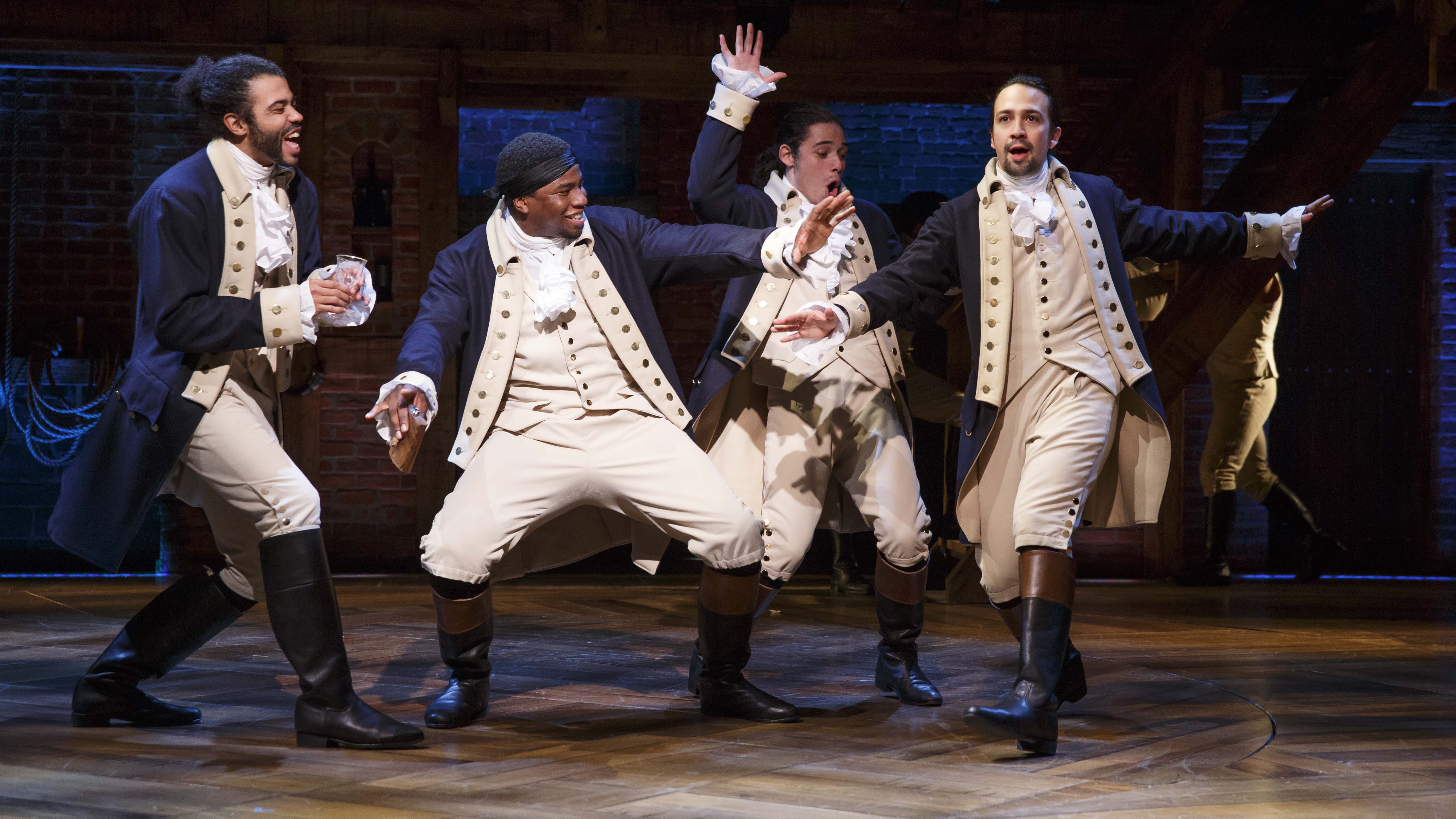By now, you’ve either heard uproarious praise for Hamilton, Lin-Manuel Miranda’s musical that follows complicated Founding Father Alexander Hamilton (often performed by Miranda himself) through the American Revolution and into the first three presidencies, or you haven’t heard of it at all. For those in the second camp, the clever twist in Miranda’s musical is the music itself: the retelling of the birth and infancy of America through hip-hop, rap, R&B, and soul—in other words, the music created, perfected, and sustained by America’s racial minorities. In a conceptual stroke bold in its nonchalance, every Founding Father and Mother is portrayed by a person of color (including Aaron Burr, Hamilton’s obsessive one-man Greek chorus and the inevitable murderer of the man himself, rendered perfectly in a beautiful, tortured performance by Leslie Odom Jr.). The only stand-out white character in the show? King George, the out-of-touch comic relief who shrugs as the Enlightenment goes over his crown.
Miranda crafts an earnest reclamation of America’s first years by its most beleaguered citizens.
The last musical to please crowds and critics this much was The Book of Mormon, but that show had a built-in safety net: parody. If Hamilton attempted similar tongue-in-cheek meta-commentary on the cheery exaggerations of theater, it wouldn’t need Burr; it would’ve shot itself in its own beating heart. Miranda instead crafts an earnest reclamation of America’s first years by its most beleaguered citizens with a deep and vulnerable sincerity, all while celebrating the people who launched the American experiment by presenting them as just that: people, alive and bearing all the imperfections that got polished away over the years by statues and memorials.
There’s tension between the play’s two acts that suggests that the freedom Hamilton fought for, once won, turned his drive and ego into fatal flaws. The first act’s wartime wordplay and infectious energy alone would have cemented the show as vital entertainment. The second act, which dives into the man’s tortured inner monologue and gives the hero the liberty to litter his personal life with failures and tragedy, lifts the show out of the narrow stretch of Broadway and into the ranks of great literature while it ponders (as one song puts it) “What Comes Next?”—both for America and after death.
If you can see it, see it. If not, listen to the score. It stands alone as a great accomplishment, with dense and intricate wordplay set against stirring and clever musical arrangements, every line adding a thematic layer to unpack. It’s a musical with a standard of writing and performance so high you don’t dare attempt to sing along. When a work of art demands that you keep up with the past, you know you’re witnessing something truly special. FL







